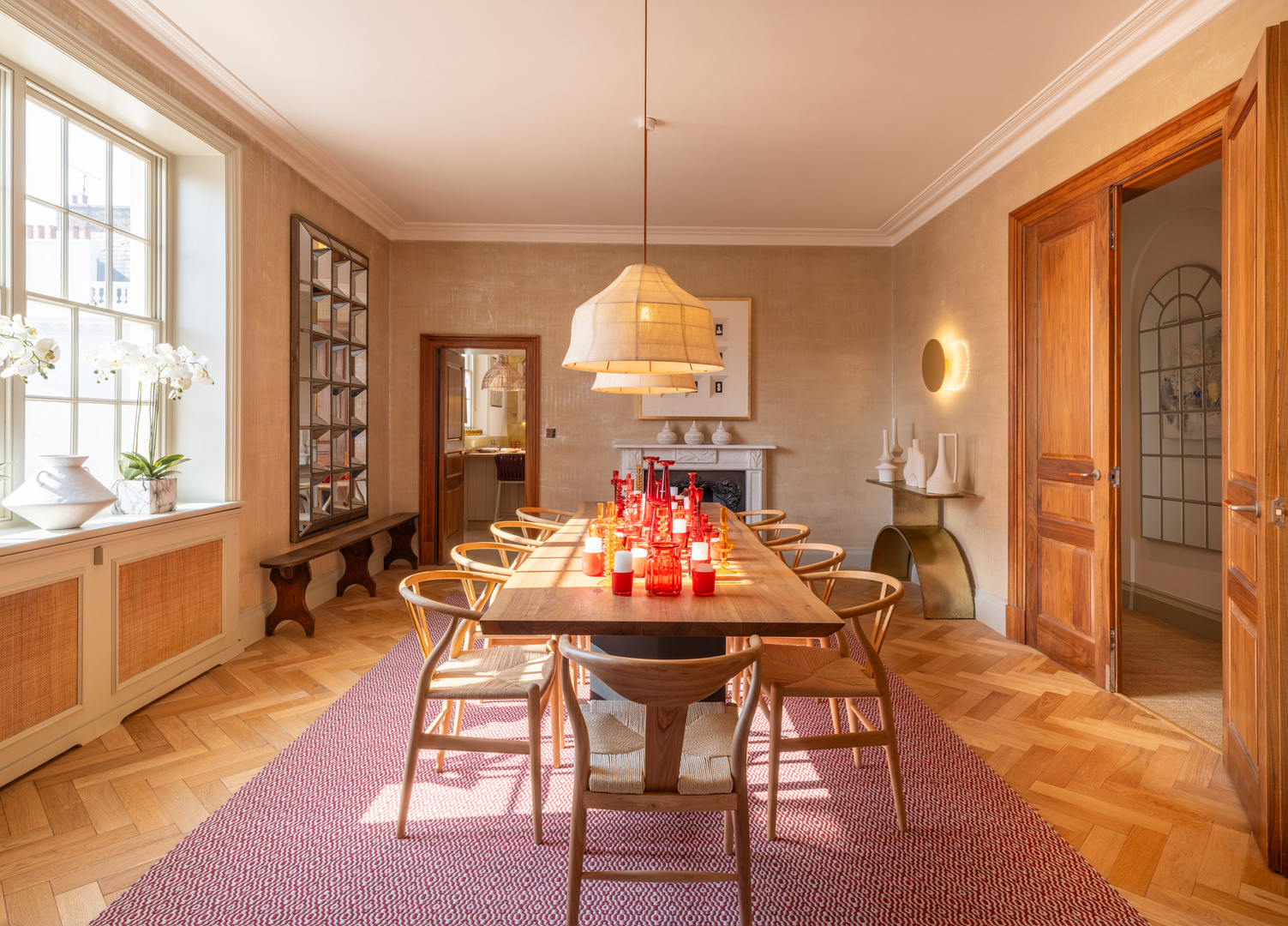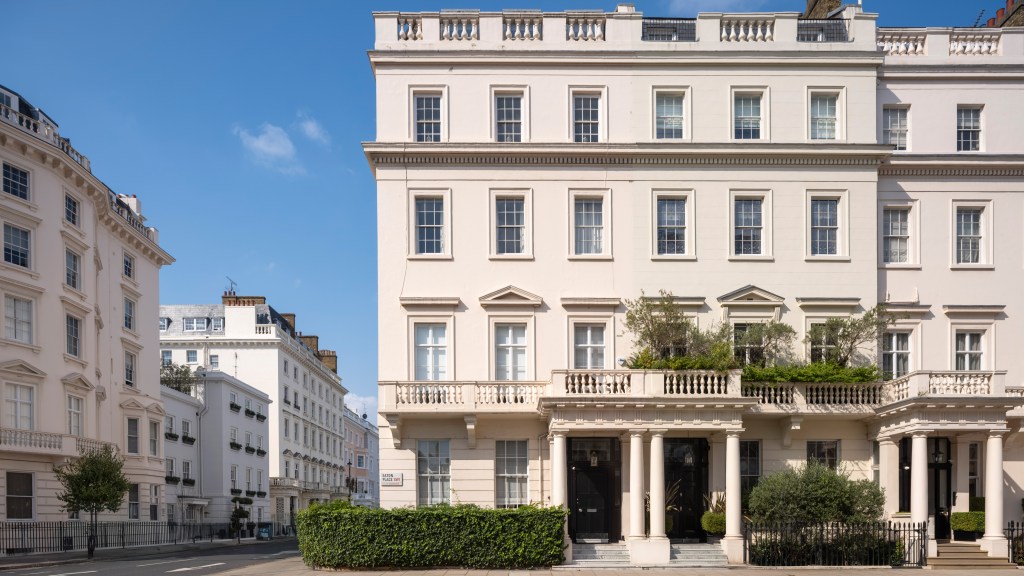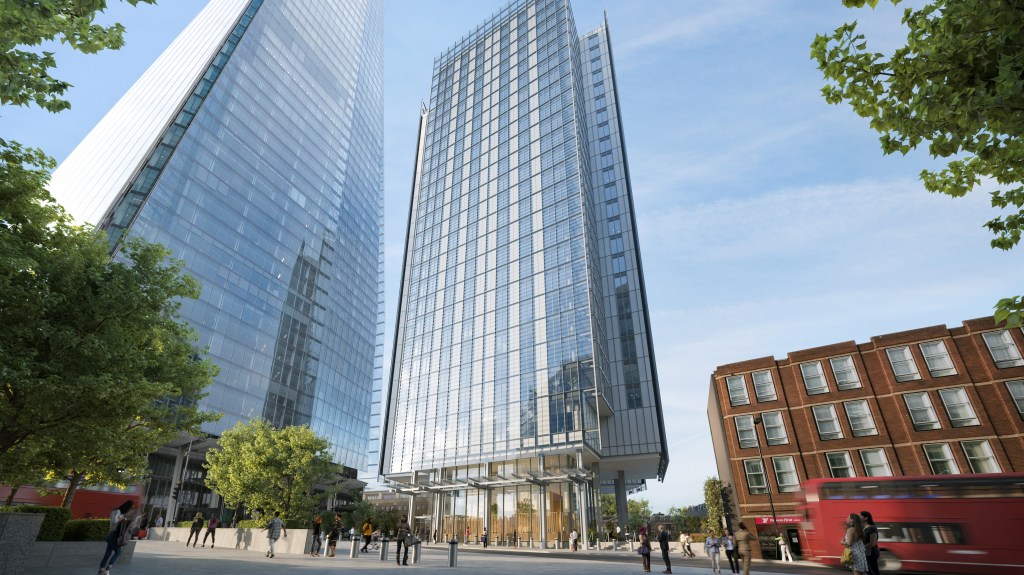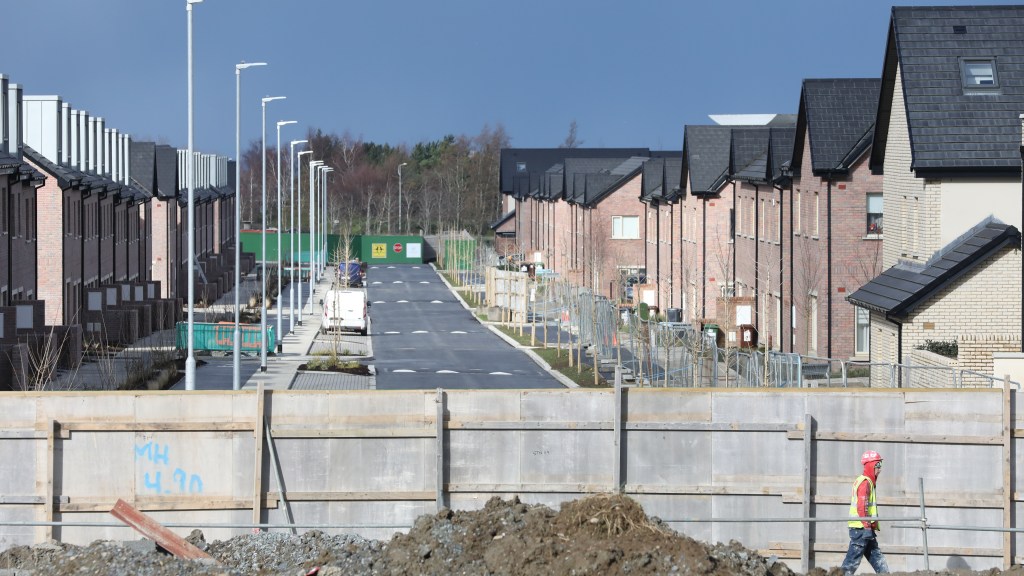Why So Many Luxury Homes in London Remain Vacant?
A tranquil garden square in Notting Hill, bordered by elegant three-storey homes, showcases a striking scene: empty driveways and shuttered windows paint a picture of decline.
“It began to empty out just before Christmas and it’s becoming more noticeable every day,” reports a local homeowner. Of the 15 residences in her vicinity, she believes only three are inhabited. “Parking on the street has become easier now, a stark contrast to previous times. Lights illuminate the houses, but many are simply shut up while their caretakers maintain them,” she observes.
According to her, the trend extends beyond Notting Hill. “It’s prevalent in significant parts of Kensington as well. Numerous residents we know have relocated. It largely stems from tax issues,” she asserts, citing a friend who recently acquired a home in Kensington from a couple relocating to the low-tax environment of Dubai.
This phenomenon is evident in London’s priciest neighborhoods, from Hampstead in the northwest to Chelsea in the southwest. Factors contributing to this trend include tax policy changes—an estimated 10,800 millionaires emigrated from the UK last year—a stagnant luxury real estate market, and a wet winter that has led to thousands of upscale properties remaining unoccupied for the majority of the year.
Statistics from the Action on Empty Homes campaign reveal that nearly one million homes in England, representing one out of every 25 properties, are not regularly inhabited. Specifically, 256,061 homes have been empty for six months or longer, an increase of 4,000 from the previous year, marking the highest level of long-term vacancy since 2011. Additionally, 279,870 homes are not utilized as the owner’s primary residence, a 6.3% increase since 2023.
The outlook for improvement appears bleak. Starting next month, the non-domiciled tax status will be eliminated, transitioning to a residence-based tax framework that subjects foreign earnings to UK inheritance tax regulations.
Furthermore, many in Britain’s affluent middle class, in addition to international ultra-high-net-worth individuals, are contemplating moves spurred by Labour’s tax increases, including real hikes like inheritance tax on pensions and potential future increases in capital gains tax.
International real estate firms are noting a rise in inquiries from British clients considering a move abroad. Popular destinations include Malta, Milan, Switzerland, and Italy, although many prospective movers are still in the exploratory phase.
“The intent to relocate primarily concerns British clients, while non-British clients display greater global mobility,” shares Alex Koch de Gooreynd, a partner in international sales at Knight Frank.
He adds, “Clients often express they are not opposed to paying taxes but are concerned about the inheritance tax burdens on their global assets, making countries like Portugal and Switzerland, which impose zero inheritance tax, incredibly attractive options.”
In Notting Hill, a resident on Clarendon Road suggests that the quiet streets are more reflective of demographic shifts and consistent rain than non-domiciled tax payer departures.
With a baby in her arms, she remarks, “Many homeowners in this area are international—Europeans, Americans—who possess multiple homes. They seem to inhabit a world separate from the rest of us.”
Alexander Litos, who manages the front desk at a nearby dry-cleaning service, adds, “The activity here is very seasonal. We wouldn’t notice if anyone left until the summer, just before the children return to school in September.”
Whether attributed to tax policies, inclement weather, or overseas investment trends, prestigious neighborhoods across central London are dotted with residences lying vacant for significant periods throughout the year.

Years on the Market
Another factor contributing to this vacancy trend is unrealistic pricing set by affluent sellers, who keep their properties on the stagnant London real estate market at inflated prices for years without making sales. These wealthy owners often have no financial urgency to sell, leaving homes listed at unachievable prices for prolonged periods.
A notable example includes a four-bedroom house on Grosvenor Crescent Mews, owned by Indian tea mogul Rishi Sethia and his spouse Queenie Singh. They purchased it for £9.5 million in late 2020 but have never resided there, listing it for £13 million in November 2023 before reducing the asking price to £10.99 million. It has remained unoccupied for at least five years.
Paul Finch, head of new homes at Beauchamp Estates, reflects on the situation saying, “We had two offers around £11.5 million; I suspect the sellers regret not accepting them, but time ticks on…”
Finch notes that properties in Knightsbridge and Belgravia have faced especially sluggish sales as many require significant renovations that buyers are unwilling to undertake. “International clients often shy away from the hassle of renovations,” he explains.
As Finch walks down Lyall Street, he points out numerous large homes that remain unsold in Beauchamp’s listings. One expansive property has been empty since a Turkish family purchased it for £14 million in 2017, planning to renovate it for their son’s university start. Ultimately, the family opted for a £10 million flat elsewhere, leaving the grand home vacant.
“They insisted on seeking £20 million for it now, but that’s unrealistic. They will not achieve that price,” Finch states.
When queried about what might prompt a price reduction, Finch comments that sellers, due to their wealth, don’t have to sell unless they choose to—”They’ll maintain it until a buyer with deep pockets offers their price,” he concludes.
A historic mansion once owned by gambling tycoon Lord Aspinall, and subsequently by the Delevingne family, remains unsold on the market for 15 months. This 5,456 sq ft residence in Belgravia, originally listed for £23.5 million early last year, has seen a price drop to £21 million, yet remains without a buyer despite several viewings.
Often, this issue arises from agents who overvalue properties to appease wealthy clients for the sake of securing commissions. A three-bedroom duplex penthouse previously owned by Fleetwood Mac’s Christine McVie was recently listed with competing valuations ranging from £8 million to £12 million, as recorded by Finch. He advised a more realistic asking price of £6.95 million coupled with an interior redesign, which the estate embraced. However, such prudent adjustments are not always the norm.
The Empty Home Service
Within these locked residences exists a dedicated cadre of staff ensuring their upkeep. Camilla Dell, founder of the property buying agency Black Brick, launched a Vacant Care division in 2007 after discovering that many clients opted to stay in hotels during visits to London, as their homes were not prepared for habitation.
Recognizing a business opportunity, she offered to ready homes for their owners, ensuring upon their return a clean, stocked, and warm environment. The service has since evolved into Prime Property Asset Management, where staff routinely check heating, plumbing, and pest issues in empty homes.

Homeowners risk loss of insurance coverage if they do not periodically check their properties. “We manage a property in Knightsbridge worth roughly £10 million, where the insurance policy mandates weekly visits,” explains Jason Wei, head of property management at Black Brick.
Currently, almost 50 properties remain under the agency’s maintenance umbrella, with 40% of new clients signing onto the service last year. Routine visits are billed hourly, while more complex properties with advanced systems incur costs of “a few thousand to many thousands of pounds” monthly.
The employment of a live-in housekeeper typically costs between £17,000 and £22,000 annually, representing a hefty investment to maintain these properties without occupants.
Owners utilize staff at Eccord, another property management firm, at £120 plus VAT per hour for various services, including maintenance and bill payments, as many do not wish to grant live-in staff access to their finances.
Eccord’s portfolio includes approximately 30 properties, half of which are temporarily vacant. Founder Jo Eccles notes, “Some clients visit London for a couple of months during summer, escaping the heat of their current residencies, participating in events like the Chelsea Flower Show, then depart once again.”
The agency typically investigates empty properties bi-weekly to compile reports for homeowners, including photographs and meter readings.
The continuous presence of staff also acts as a deterrent against burglary—a constant worry for properties located in affluent areas. Eccles explains, “For larger estates, we provide key-holding services. If an alarm is triggered, a staff member will reach the property within 20 minutes, ensuring swift security responses.”
Rising security concerns are influencing London’s appeal as a premier destination for the wealthy, according to industry experts.
George Azar, chairman and CEO of Sotheby’s International Realty for the UK, Dubai, and Saudi Arabia, states that perceptions of a worsening crime rate and inadequate policing are increasingly prevalent, particularly among Middle Eastern property owners.
“People are apprehensive about wearing expensive jewelry or watches,” he remarks. “Nowadays, affluent visitors to London often require security detail during their stay, suggesting underlying issues within the country.”
Despite spending limited time in their London residences, the potential profits from awaiting a market recovery encourage these owners to bear the high costs of keeping their homes vacant.
“Ultimately, if an individual is worth a billion, what do they care if £20 million worth of assets sit idle?” Finch states, highlighting the long game luxury real estate agents face in convincing wealthy property owners to lower their prices.
The Insider’s Take on Empty Homes
Properties located in central London frequently lie vacant for major parts of the year. Evening strolls through Belgravia, Knightsbridge, and Mayfair reveal many darkened homes. For instance, One Hyde Park in Knightsbridge is prominently marked by its unlit interiors.
Reflecting on my past experiences, I recall selling a 10,000 sq ft house in Belgravia in 2016, which served as little more than a garage for my client—a Middle Eastern gentleman who stored his luxury cars there but never spent a night inside. He preferred the opulence of a suite at the Dorchester. It took an adviser warning him about a prospective mansion tax to make him consider selling the house he didn’t even remember purchasing, ultimately leading to a profitable sale.
American clients are often astonished by the low tax burdens borne by owners of high-value properties in London, where the highest council tax rate in Westminster and Kensington and Chelsea does not surpass £3,000 a year, a stark contrast to the hundreds of thousands in state and city taxes required in similar valued properties elsewhere.
This discrepancy is a compelling reason why the global wealthy are less perturbed about maintaining ownership of properties in London, despite the rising insurance and staffing costs. It’s a classic dilemma: we welcome the ultra-affluent for the economic benefits they bring, yet yearn for vibrant communities enlivened by full-time residents.
To paraphrase Honoré de Balzac: “Behind every great fortune lies a great crime.” One can sympathize with the privileged if they could only become better neighbors while coexisting with the general populace.




Post Comment